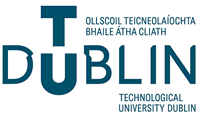Mr E Conlon, Dr B Bowe
No more applications being accepted
Competition Funded PhD Project (Students Worldwide)
About the Project
Engineers Ireland Accreditation Criteria for Level 8 engineering programmes require that graduates have an: “An understanding of the need for high ethical standards in the practice of engineering, including the responsibilities of the engineering profession towards people and the environment”. While a large number of programmes have been deemed to have met this criteria no research has been conducted about the extent to which ethics education (EE) is provided to engineers and the models of ethics education which are being followed. This research project will focus on two key issues:
1. The identification of patterns of EE teaching based on models provided in the literature (eg Conlon 2011 http://www.sefi.be/wp-content/papers2011/T6/187.pdf). The focus here will be the coverage of micro and macro issues; the inclusion of Science, Technology and Society studies and the extent to which the organisational and social context of engineering is addressed. Models of teaching will also be examined to determine the use of standalone and embedded models and who is doing the teaching. Methods of assessment will also be examined;
2. The experiences of EE teachers in engineering. The aim here would be to carry out in-depth interviews with teachers of EE to explore curricular content and methods but also their experience and motivation for doing this work, training and education and their views about the extent of institutional support for their work. Student responses and engagement with EE will also be explored.
The aim is to identify models of best practice, barriers and necessary supports for EE in engineering and provide a significant contribution to knowledge about the integration of the humanities into technical programmes and the development of interdisciplinarity in engineering education. The researcher will also aim to establish a network of EE teachers/lecturers.
Funding Notes
A scholarship of €10,000 per annum for four years will be provided. The cost of EU academic fee will be covered for the duration of the scholarship. Non-EU applicants are eligible to take up the scholarships, but they will be required to fund the fee differential. A modest bursary for travel, conferences and some limited materials will also be provided.

 Continue with Facebook
Continue with Facebook

